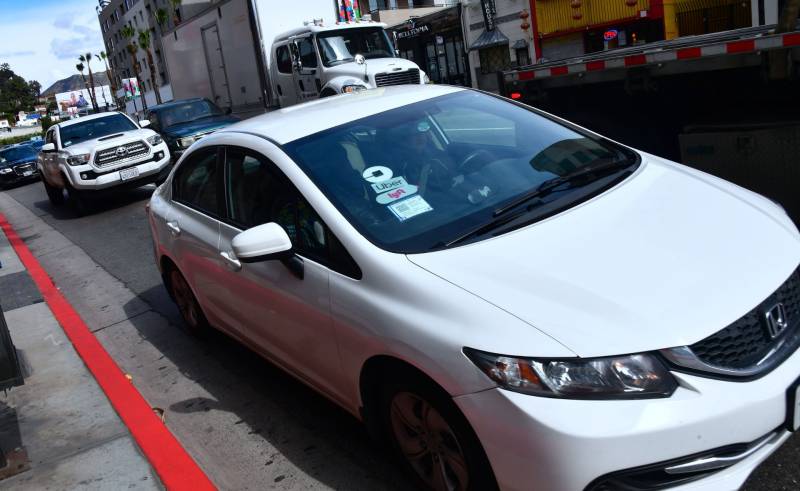Uber and other gig companies succeeded in getting the federal government to make its drivers eligible for PUA through the CARES Act. But, to get this money, the drivers have to be recognized as contractors, not employees.
That puts states like California, where there is a legal battle for drivers to be recognized as employees, in a difficult situation.
Since the beginning of the pandemic, the EDD, the department that disburses unemployment insurance, has encouraged anyone who believes they are misclassified as contractors to apply as employees.
But now, gig workers are being encouraged by the EDD and Newsom to go to a new website that will be up in two weeks to apply for aid as contractors. That means they are going to be receiving money from federal taxpayers instead of the state unemployment fund.
Labor advocates have said turning to federal taxpayers is the result of the state failing to hold companies accountable for years over the question of employee classification.
In a statement, the California Labor Federation said, “Gov. Newsom took action today to free up federal relief dollars for gig workers while asserting their rights as employees under California law, but it should never have come to this. All taxpayers are now on the hook as a result of these wealthy companies’ refusal to follow the law.”
Steve Smith, a representative for California Labor Federation, said he hopes the state can take legal action to recover the money Uber and Lyft should have been paying into unemployment funds.
“These companies are on the hook for unemployment insurance and paying back taxes. Nothing about that has changed,” Smith said. “We’re going to continue asking the state to aggressively pursue those back taxes.”
The Uber Lobby: Pressing for Contractor Status
Uber has been pressuring the EDD and the governor to stop telling gig workers to apply for unemployment as contractors.
Last week, Uber sent the governor’s office an email asking Newsom to alter how the state was considering drivers. It requested that the governor ask the EDD to change the language on their website.
KQED acquired a copy of that email. It says, in bold:
“Specifically, we ask that EDD remove the sentence ‘If you are a gig worker, you should list your gig employer as your last employer’ from its website. The EDD guidance that directs applicants to ‘list your gig employer as your last employer’ should be removed from the EDD website, and we ask that you work with EDD to do so immediately.”
Uber confirmed that it sent the email and plans to follow up with a formal letter. It also said, “Refusing to take advantage of the federally funded Pandemic Unemployment Assistance included in the Congressional Relief Package is not in the financial interest of drivers and delivery people, or the state of California.”
The EDD has not altered its website. But with the announcement of the new website for gig workers to apply for federal aid as contractors, the battle appears to have already been won in favor of Uber and other gig companies.
Paying Back Unemployment in Other States
Last year, the state of New Jersey sent Uber a bill for $650 million in unpaid unemployment insurance for its drivers. Given the number of drivers in California, the amount to cover unemployment payments would likely be in the billions of dollars.

